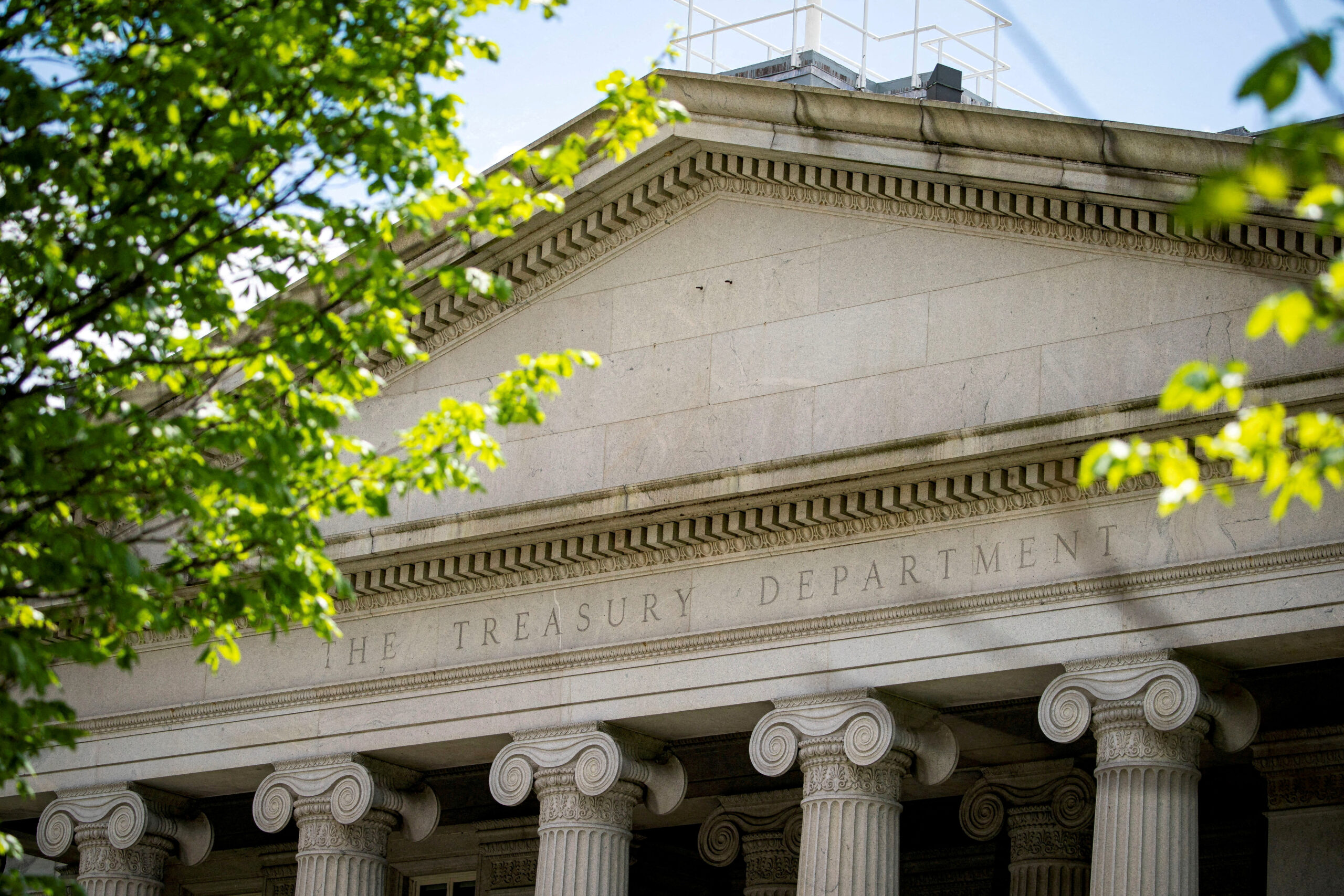NEW YORK – A recalibration of how the US presidential election plays out is causing bond investors to bet yields stay higher for longer as November approaches.
Yields have risen sharply after President Joe Biden’s stumbling performance against Republican rival Donald Trump in the first presidential debate last month, which increased speculation about a second Trump win when voters go to the polls on Nov. 5. The benchmark 10-year yield rose about six points to 4.34% following the debate.
Some investors are betting on higher inflation under Trump because of trade and economic policies such as higher tariffs on imports, and profligate government spending along with lower tax revenues, which would boost fiscal deficits and U.S. debt levels. Trump’s team has said his pro-growth policies would bring down interest rates and shrink deficits.
Republican National Committee spokesperson Anna Kelly said in a statement that the market reaction to Trump’s “debate victory reflected the anticipation of the strong-growth, low-inflation reality that President Trump will deliver once again.”
Some have said a reckoning on U.S. debt will eventually catch up with the country and market.
“The lens (is) really starting to turn to the fiscal and the debt dynamics,” said Mary-Therese Barton, fixed income chief investment officer at Pictet Asset Management. “(The) rate-cutting cycle is perhaps shallower than expected with a focus more on the longer end.”
Those concerns around widening fiscal deficits and the rising government debt burden threaten to limit any nascent rally in bonds, expected as the Federal Reserve gets closer to cutting rates after an aggressive hiking cycle to tame inflation.
“We feel the probability of (a) Trump election victory has risen,” John Velis, Americas macro strategist at BNY, wrote in a note. “Our faith in lower yields going forward has been eroded and we wouldn’t be surprised to see a continuation of the very recent moves higher in yields.”
Shorter-dated Treasuries, more directly linked to changes in monetary policy, could still rally in case of rate cuts, but even for bond bulls, the outlook for longer-dated Treasuries has become cloudier. Longer-dated debt tends to reflect expectations for economic growth, inflation, and the fiscal outlook.
“The headwind that we’ve been seeing should start abating and we do think investors will start focusing more on the cutting cycle,” said Anders Persson, chief investment officer and head of global fixed income at Nuveen.
However, “that’s probably going to show up more on the front end of the curve like the two-year for instance,” he noted. “The 10-year will be a little bit trickier to call given the elections and if inflation is a little bit stickier.”
‘FRUSTRATION’
Investors had bet heavily early this year on a normalization of interest rates, but that has sharply changed with the Fed increasingly being seen as pushing rate cuts out further. Traders of futures contracts tied to the Fed’s policy rate are betting on about two rate cuts for the rest of 2024, one-third of the policy easing investors were hoping for in January.
Bonds rally when rates are lowered because existing securities yield more than new ones and become more valuable. But as monetary easing has proven elusive, what appeared to be a straightforward trade as the year began has become a test of patience for investors.
“I think there was some frustration with some people who took that big positioning,” especially on behalf of clients, said Kevin McCullough, portfolio consultant at Natixis Investment Managers. “That’s a real hard conversation to have.”
A measure of total returns for Treasuries since the beginning of the year remains in negative territory despite yields having declined from their annual peak in April.
Year-to-date total returns, which include bond payouts and price fluctuations, were still minus 1.1% this week, the ICE BofA US Treasury Index showed. Returns have been negative since early February.
Regardless of the election outcome, many investors are optimistic on bonds as yields have become more attractive in an environment of higher rates.
“We still have six months left to carry in fixed income … and obviously if yields move lower from here still, there’s potential for even more appreciation,” said Mike Cudzil, managing director and generalist portfolio manager at PIMCO, one of the world’s biggest bond investors.
“Whoever wins the election, regardless if Republican or Democrat, the loser is going to be the deficit,” he said. “I think what will matter more is the slowing of inflation, the slowing of growth.”
(Source: ReutersReuters)
Zabih Ullah is a seasoned finance writer with more than ten years of experience. He is highly skilled at analyzing market trends, decoding economic data, and providing insightful commentary on various financial topics. Driven by his curiosity, Zabih stays updated with the latest developments in the finance industry, ensuring that his readers receive timely and relevant news and analysis. Read Full Bio










